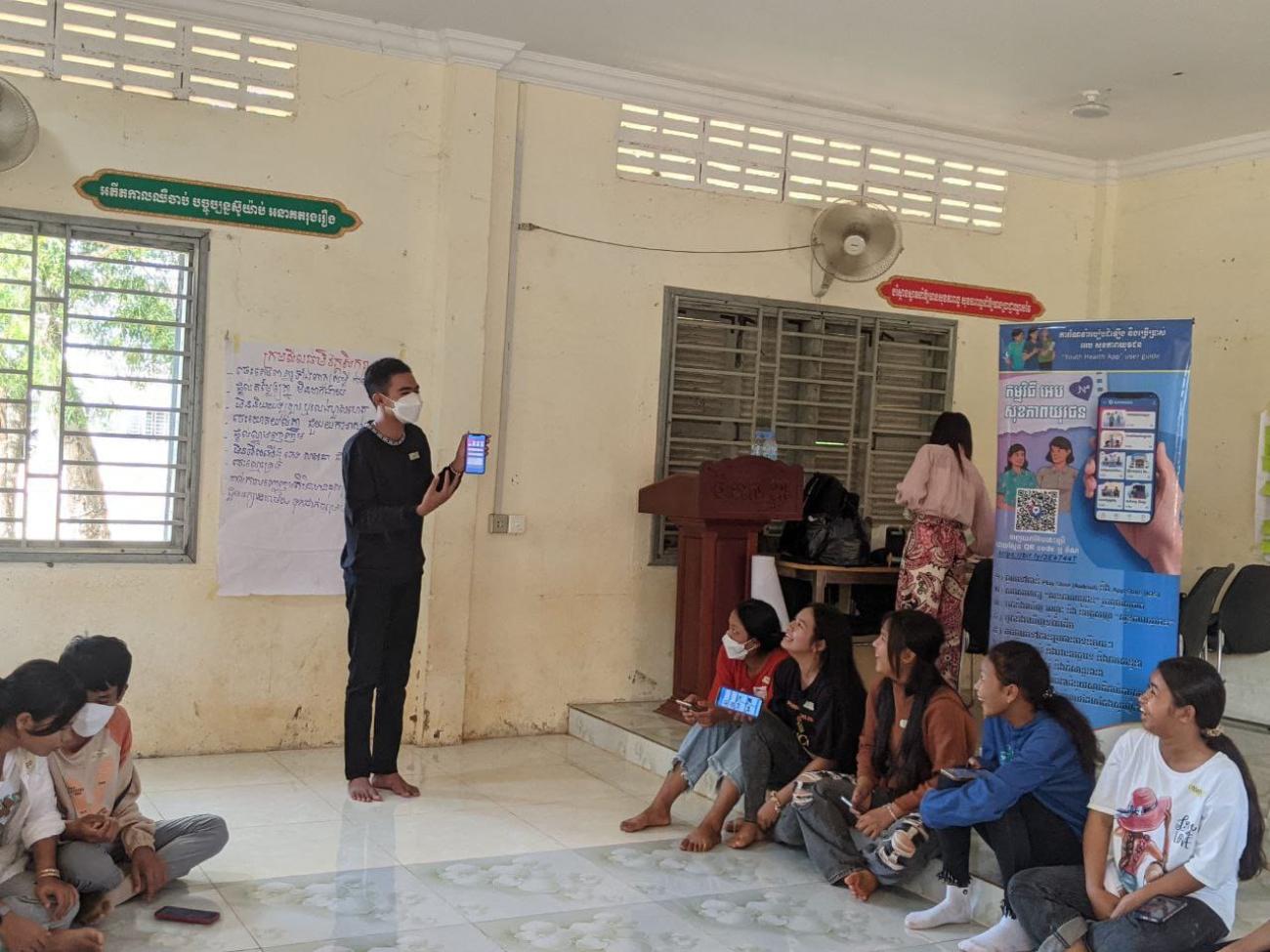Sokchen: A Champion for Change in Gender and Sexual Reproductive Health

Written by UNFPA Cambodia
Growing up in Kampong Cham Province, a grade 11 student at Hun Sen Kchoav High School, Yin Sokchen witnessed how lack of access to information about reproductive health, and lack of discussion on sensitive issues such as violence led to harm in his community. He saw classmates humiliated and emotionally distressed due to harassment, often fueled by societal norms and stereotypes that perpetuate gender inequality and early marriage.
Determined to make a difference, Sokchen embraced the opportunity to learn and grow when his school introduced a school health room alongside the use of a new Youth Health App which were supported by the Government of Japan through UNFPA. Impressed by the information he gained through the Comprehensive Sexuality Education (CSE) curriculum in school as well as the information he found on the Youth Health app, and he joined the programme as a peer educator. Through the program, Sokchen gained valuable knowledge on SRH, HIV/AIDS, GBV prevention and gender equality, health services, and basic counseling and facilitation skills. He learned to challenge harmful social and gender norms and communicate respectfully with others.
In Cambodia, adolescents and youth risk poor health outcomes through lack of access to critical information about their reproductive health and rights as well as gender equality and gender-based violence. In Cambodia, 4.80% of young men and 16.5% of young women engage in early sex and 9% of teenagers become pregnant, with this rate remaining higher in rural areas compared to urban areas. Early child marriage also remains high, at 17.90%[1]. The Royal Government of Cambodia’s Ministry of Education, Youth and Sports is well aware of the need to ensure that young people get the information they need and as a result passed a Comprehensive Sexuality Curriculum for grades 5 – 12 which contains critical sexual and reproductive health information including information about the harms of gender inequality including gender-based violence.

As a result of Sokchen’s role as a Peer Educator, he even changed his views on traditional gender roles and started communicating more openly with his mother. "I didn't realize how risky and harmful having sex under 18 can be without proper knowledge of safe sex or reproductive health," he admitted. "Now, I understand the importance of openly discussing these topics to prevent youngsters from rushing into early marriage or engaging in sexual activity based on misguided notions of “a real” man."
Empowered by his knowledge, Sokchen became a passionate advocate for change. He actively shared information about the Youth Health App and sexual reproductive health and rights topics with his classmates and friends, both at school and through Facebook Messenger. He reached 25 individuals, including 14 girls, and observed a positive shift in their attitudes. His male friends developed a better understanding of girls' menstruation challenges, and some peers started respecting female friends more by avoiding sexist jokes.
Sokchen's impact extended beyond the classroom. He observed a reduction in verbal abuse among couples and a growing understanding of gender issues within the community. Inspired by his success, Sokchen became a passionate advocate for sexual reproductive health and gender equality. He organized awareness campaigns, raised funds for the program, and created a safe space for students to share their experiences.
Sokchen's journey is a testament to the power of teenagers being able to access the information they need to make informed choices about their bodies and peer support in creating positive change. His dedication and leadership have made his school and community a safer and more respectful place for everyone. Sokchen's story demonstrates the role of Comprehensive Sexuality Education (CSE) in creating a generation of informed, empowered, and responsible individuals who can build a more just and equitable society.
[1] Cambodia Demographic Health Survey – CDHS 2021-2022


